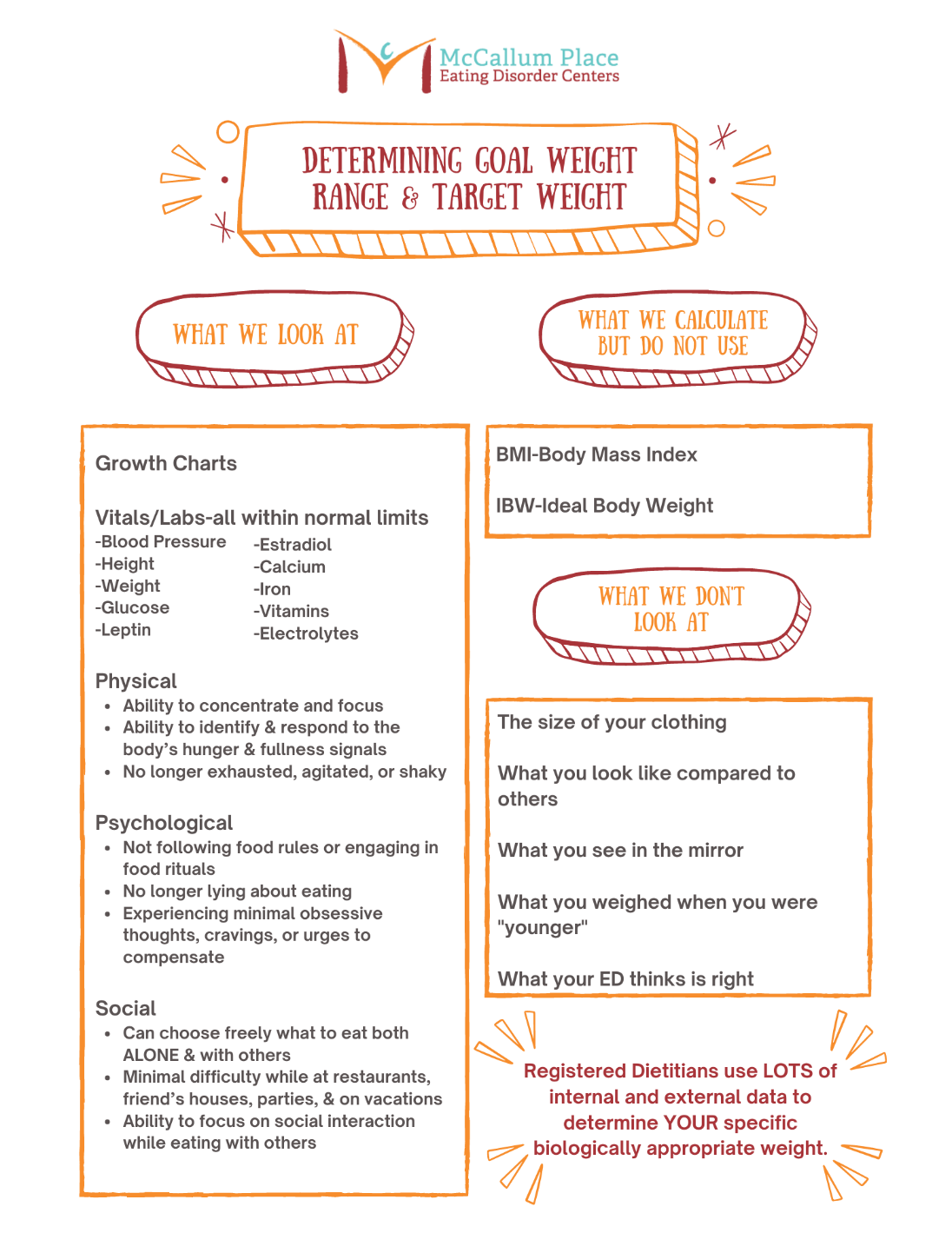Have you ever wondered how much you should weigh? Of course you have. We all have. Now, let’s reword that question. Have you ever wondered what an appropriate weight is for you, right now, at this point in your life?
Can you see the nuance between the two questions?
The first question includes the word “should.” This version of the question implies that there is a weight expectation that you are obligated to meet. Whereas the second question provides more structure, and considers you as a unique individual. While subtle, the difference is important. As an eating disorder dietitian, I spend an inordinate amount of time discussing weight. Not only with my patients, but with their families and loved ones. These conversations do not stop at work – they continue outside the office with my friends and family when they have questions concerning their health & weight. With the obvious inundation from social media and diet culture, these conversations also take place with complete strangers seeking validation on the latest greatest diet trends. While most are well-meaning, all weight based discussions have one thing in common, the notion that weight equals health. This dialogue is not about these conversations being a burden to me, because I love my work and I genuinely love helping people; the intent of this blog is to bring to light the preoccupation with weight – how weight actually equates to health, and how weight often holds people captive.
When working with patients, one of my primary treatment goals is weight neutrality. This is the idea that weight is simply information. It holds no bearing on your worth or value as a person, nor does it determine your health. It is only one factor, in a lengthy list that contributes to an individual’s overall health. What we need to understand about weight is that while we can see it on our bodies, measure it on a scale, and alter it with diet & exercise, in doing so, it doesn’t necessarily mean we have improved our health. Since weight can be manipulated more easily compared to other lifestyle changes, it is by far the most targeted factor in the medical community. As a registered dietitian, I am required to use the same tools that health care professionals use to measure, evaluate, and categorize my patients. By utilizing standardized charts, measurements, and calculations, it’s really just a way to satisfy a checkbox on paper. I am not saying we should disregard weight entirely, but rather rethink the way we use it – the importance we place on it and the value it holds over us. When it comes down to it, there are things much more important than your BMI category that determine your health.
There are three concepts used in treatment that I want to introduce to you: goal weight range, target weight, and a biologically appropriate natural weight.
- Goal weight range is an estimate as to where your body needs to be for optimal functioning. This is the idea that our bodies have genetically predisposition weight ranges that it will work very hard to sustain, essentially maintaining an individual’s metabolic homeostasis. This natural weight range is attributed to our individual genetics and can help with ED recovery because it supports why we need to work with our bodies, not against them.
- Target weight will fall somewhere within that goal weight range and will be where your body hangs out when you are taking care of yourself. Both of these measures can and should change with recovery, growth, age, and time. Weight is not static. Through time, our bodies have different needs, and therefore an individual’s weight range will change.
- The last idea is a term you might not be familiar with, biologically appropriate weight. This is a weight where your body, mind, emotions (all the things) are at their best. In this space we don’t fight our hunger, we honor it. We recognize that our body is literally designed to let us know when we need food and because of this, weight is stable. We don’t feel exhausted, irritable, or have mood swings because of food deprivation. We are not constantly thinking about food, what we should eat and what we should not eat. We don’t lie about food. We don’t omit how we eat or what we eat to ourselves or others, nor do we feel guilt when we eat what we want. Food is not a barrier in seeing our friends & family, going out to restaurants, having fun, or enjoying life.
When we find our biologically appropriate weight, we thrive and no longer require external validation from others. When we are at our best, we trust our bodies and listen to what we need. We are at peace with food. We understand that weight is a part of us, but certainly does not define us.










